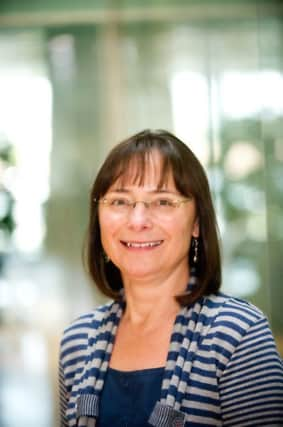New chief scientist appointed at Bearsden's Beatson Institute


Professor Karen Vousden is currently director of the Institute and in her new role as chief scientist she will be responsible for overseeing Cancer Research’s focusing on the importance of fundamental science in developing new cancer treatments.
Professor Vousden will also be building and strengthening existing links with international colleague as well as supporting the next generation of scientific and clinical cancer researchers.
Advertisement
Hide AdAdvertisement
Hide AdWith more than 30 years at the forefront of transatlantic cancer research experience Professor Vousden is ideally suited to the new role. She has been director since 2003. Deputy director Professor Owen Sansom will lead the institute until a permanent director is recruited later this summer.
Professor Vousden, said: “It’s a tremendous honour to be appointed as Cancer Research UK’s chief scientist. Research has already led to better treatments, new drugs, more accurate tests, earlier diagnosis and screening programmes - doubling survival over the last 40 years.
“But sadly survival still remains low for some cancer types, including lung, pancreatic, oesophageal cancer and brain tumours, and we are encouraging more research into these areas. We now understand that within each tumour type are several different sub-groups that may respond very differently to treatment. It’s critical that we know more about the core biology at the heart of these cancers to be able to design the most effective therapies and be prepared for the development of resistance to these treatments. We’ll also continue to support research into all 200 types of cancer, across all age groups, to increase survival for all cancer patients.”
Sir Harpal Kumar, chief executive of Cancer Research UK, said: “Cancer is a complex disease but thanks to research, our understanding of the biology of the disease has improved markedly. Important technological advances have created exciting opportunities to develop new ways to diagnose, treat and prevent the disease which will accelerate progress.
Advertisement
Hide AdAdvertisement
Hide Ad“This progress depends on outstanding individuals like Professor Vousden and their teams who conduct research across the country. Her vast experience will enable us to move closer to our target of three-quarters of patients surviving the disease by 2034.”